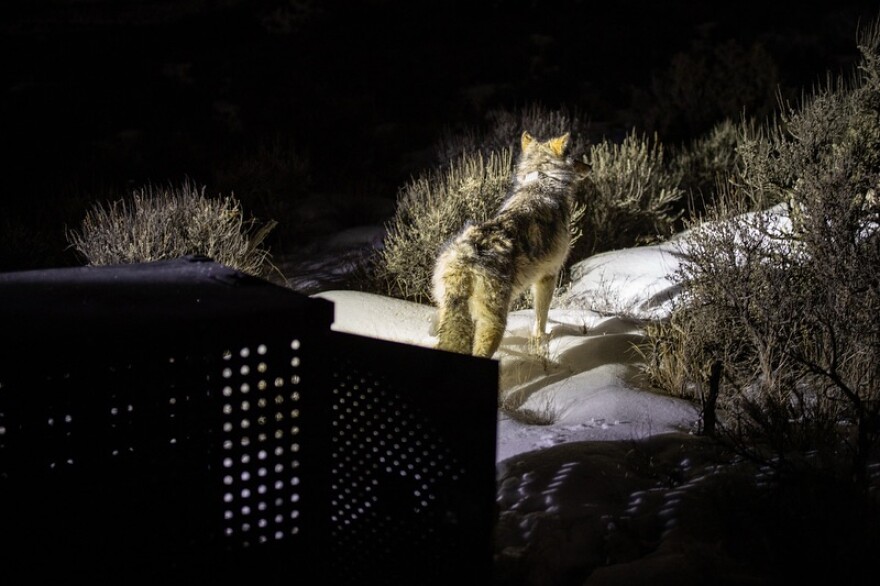Colorado’s wolf population grew this spring with the formation of three new packs.
Get top headlines and KUNC reporting directly to your mailbox each week when you subscribe to In The NoCo.
The state designated the new wolf families as the One Ear Pack in Jackson County, the King Mountain Pack in Routt County and the Three Creeks Pack in Rio Blanco County.
They join the Copper Creek pack, which formed in Grand County last year.
The new pack designations were mentioned in a "wolf update" slideshow presentation, which was included in the online agenda for an upcoming Parks and Wildlife Commission meeting on Thursday.
CPW has not announced how many pups have been confirmed in each of the new packs.
The agency said last spring it was monitoring as many as four potential dens in the state and keeping an eye out for new pups.

KUNC News reached out to Parks and Wildlife on Monday morning to confirm the three newly-formed packs and ask if the state had any more information about them, including how many pups had been born.
A spokesperson confirmed the newly-designated packs and said the agency would share more information about them at the commission meeting on Thursday.
“Until that presentation has been delivered, CPW will not have any additional information available,” spokesperson Luke Perkins said. “CPW recognizes packs only after a breeding pair of wolves have reproduced in late spring. Once a pack has been officially recognized it is generally named after the geographical area where it has set up its territory.”
Wolf advocates celebrated the news that more wolves in the state have had pups.
Rob Edward of the Rocky Mountain Wolf Project said they're vital to achieving a self-sustaining population.
“We are putting a lot of money into going and fetching wolves and bringing them back here and releasing them in male and female quantities that facilitate possible pairing,” he said. “The proof is in the pupping. This speaks volumes about the success of this historic effort.”
Colorado's wolf restoration has also generated controversy. Several ranchers have recently called for the removal of the Copper Creek Pack near Snowmass following several attacks on livestock last spring.
One of Colorado's Parks and Wildlife Commissioners, a rancher who lives in the area of the attacks, attempted to call a vote to remove the pack last month, calling them "bad animals."
The vote was ruled out of order and the commission did not take any action after other commissioners raised concerns about intervening in decisions usually made by CPW biologists.
Edward said, despite the recent depredations, his organization is proud of the restoration efforts.
"The reality is the majority of wolves on the ground are out there not getting into conflict, which means they’re out there eating elk and deer and they're doing exactly what wolves are supposed to do," he said. "The Rocky Mountain Wolf Project celebrates this news and the great work that Colorado Parks and Wildlife are doing to fulfill the will of the people."
The news of newly-formed packs comes weeks after a string of deaths of Colorado's reintroduced wolves.
Six have died this year, including wolf 2505-BC.
That wolf was killed by federal agents in Wyoming after attacking sheep.




